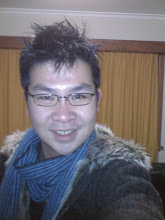It's like the Olympics ... the world's top legal eagles are descending on London
By Frances GibbAutumn's 50th Commonwealth Law Conference will be a gathering of the great and good
FORGET THE Olympics — lawyers in London are jubilant at scooping a legal event that rivals many in the sporting world. This autumn 2,000 lawyers will descend on the capital when London plays host to the Commonwealth Law Conference (CLC) for its golden jubilee on September 11 to 15.
The event, which was launched in London 50 years ago, will draw a prestige line-up of chief justices, senior judges and lawyers from throughout the world. Colin Nicholls, QC, president of the Commonwealth Lawyers’ Association (CLA), said: “It is a bit like going for the Olympics — you have to bid for it. But because we had the first conference here in 1955, it is exciting that it is coming back.”
The four-day event is a “gathering of the great and the good in the Commonwealth, where the finest legal minds meet together”.
He adds: “They span every kind — judges, government lawyers, private sector lawyers, academics, legal executives and paralegals.”
But it is far from a mere talking shop. Lawyers will meet to debate action on issues from law, liberty and terrorism to globalisation and the environment; as well as disaster relief, corruption, capital punishment and the future of the legal profession. There are also sessions on HIV-Aids, disaster relief, corporate social responsibility and family law and the child.
Nicholls says: “Lawyers are facing marathon issues. The tension, for instance, between draconian measures aimed at protecting citizens from the threat of terrorism and ensuring that their human rights as far as possible are protected. It’s about achieving a balance.
“There is systemic corruption in the developing countries. Some have enormous problems and they acknowledge it.
“You get it particularly in the lower courts where there are underpaid judges working alone in remote regions — and not just judges, but court staff, lawyers . . . and then there is the problem of subordination of witnesses.”
The conference does promote policy change. Delegates will hear how both Nigeria and Kenya have introduced legislation.
“You have to have the political will to set up anti- corruption commissions that can institute proceedings,” Nicholls says.
From the UK, the roll call of speakers includes the Lord Chief Justice, Lord Woolf; the Master of the Rolls, Lord Phillips of Worth Matravers; and the senior law lord, Lord Bingham of Cornhill, as well as a host of leading lawyers such as the QCs Lord Lester of Herne Hill, Baroness Kennedy, Edward Fitzgerald, Ben Emmerson and Clive Nicholls.
But it is not all judges and barristers. The annual Law Society conference, the flagship event for England and Wales’s 100,000 solicitors, will this year combine with the Commonwealth Law Conference and the society is host for the event.
Peter Willliamson, chairman of the CLC 2005 organising committee and past president of the Law Society, says: “The line-up of speakers, representing the highest levels of the judiciary and practitioners renowned throughout the Commonwealth, is one of the most impressive ever to have been gathered in a legal conference in London.” The mix of the two events would give solicitors a rare chance to debate key topics on law and practice “within the vibrancy of an international conference”.
In its 50 years the CLC has gone through a few changes. The first event in 1955 drew 700 lawyers: it was when Lord Kilmuir was Lord Chancellor. Then it was the Imperial and Commonwealth Law Conference. The “Imperial” has long since been dropped.
The event has since had its share of headlines. The 2002 conference in Zimbabwe was cancelled because of the political situation; and the event in 2003 in Melbourne attracted more coverage than usual through the shopping trips of Cherie Booth, QC. More significantly, it led, during the highly successful Hong Kong conference in 1983, to the formation of the Commonwealth Lawyers’ Association.
icholls, who has been on the CLA council since its formation in 1986, has seen the membership grow. There are now about 100 law association members from the 53 countries, in turn representing a third of the world’s population, he says.
But it is where the CLA has effected change that its legacy can be most clearly seen. Nicholls cites two key events: the adoption of a protocol among Commonwealth countries aimed at good governance and making clear the need for the constitutional separation of powers; and the CLA submission, thought to have been highly persuasive, before the US Supreme Court on the illegality under common law of the detentions at Guantanamo Bay.
There will no doubt be similarly serious issues this autumn. But it is not all work. The social programme of sightseeing, receptions, discos and other entertainment will see to it that this biggest of legal gatherings will also be a good party.
COMMONWEALTH LAW 2005
# Judges and lawyers from 53 countries will debate key legal issues at four-day event from September 11 to 15 at the Queen Elizabeth II Conference Centre. Media sponsor: The Times.
# Session highlights: “Liberty, law and terrorism”, chaired by Sir Sydney Kentridge, QC; “Corruption”, chaired by Lord Phillips of Worth Matravers, Master of the Rolls; “Judicial independence” — speakers include
Chief Justice Anthony Murray Gleeson from Australia and Lord Mackay of Clashfern; and “Can societies afford human rights?”, chaired by Andrew Li, Chief Justice of Hong Kong.
# Fifty specialist sessions, from corporate and commercial to family law.
# www.commonwealthlaw2005.com; 020-7407 9263





